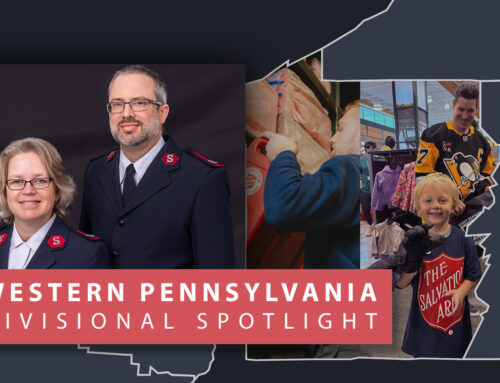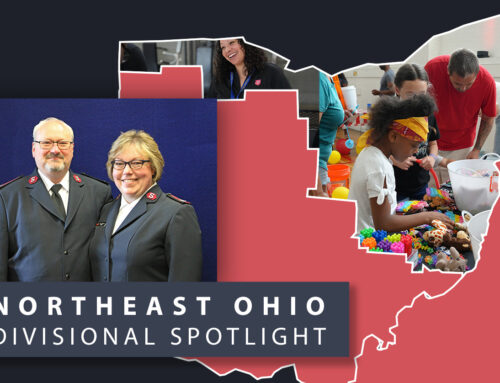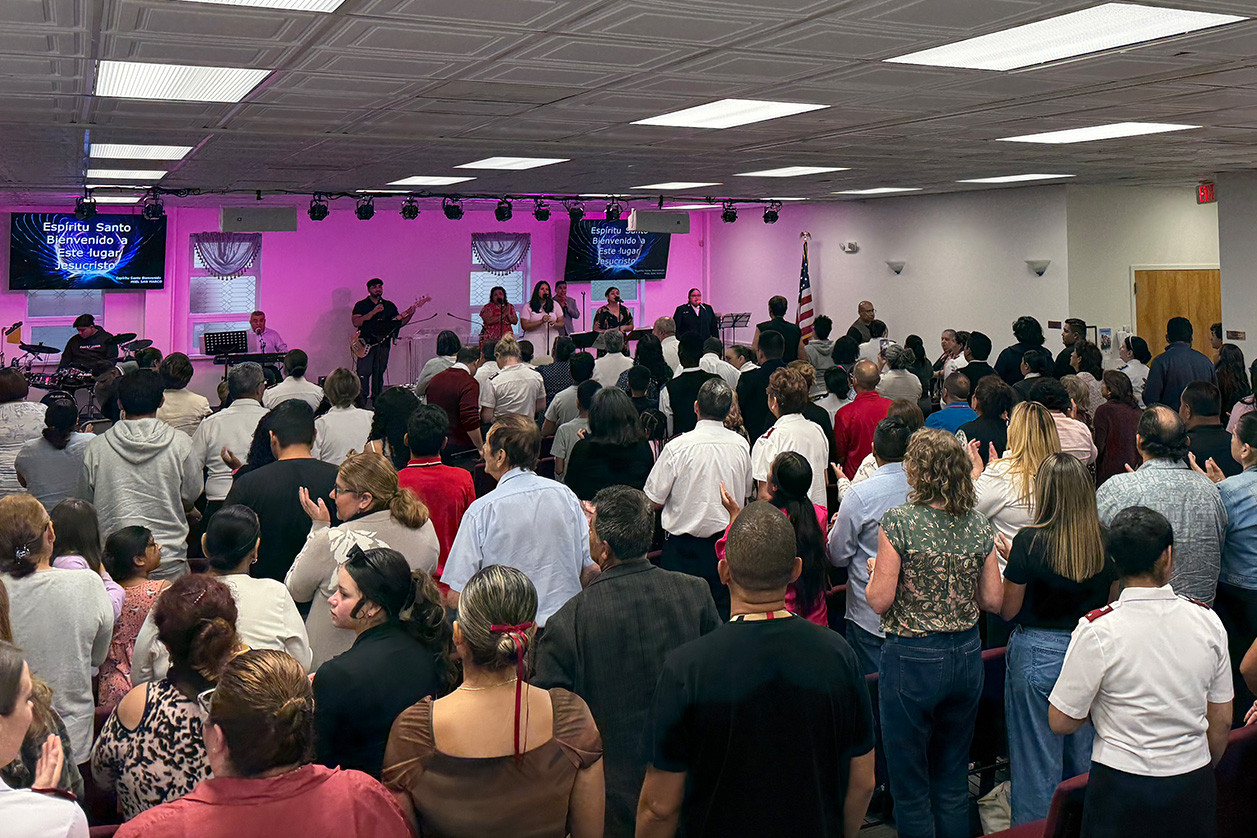
A Night of Ministry and Culture
by Hugo Bravo
The Salvation Army in New Brunswick welcomed its congregation and people from fellow New Jersey Division corps to celebrate “La iglesia que camina unida” (The Church That Walks United). Salvationists from as far as Paterson, N.J., visited New Brunswick to enjoy a Friday night of food, music, and dancing. This statewide gathering is held every three months at a different Salvation Army New Jersey Division corps. It was the second time the corps had hosted it in the six years that Captains Francisca and Martin Tripari have been corps officers at New Brunswick.
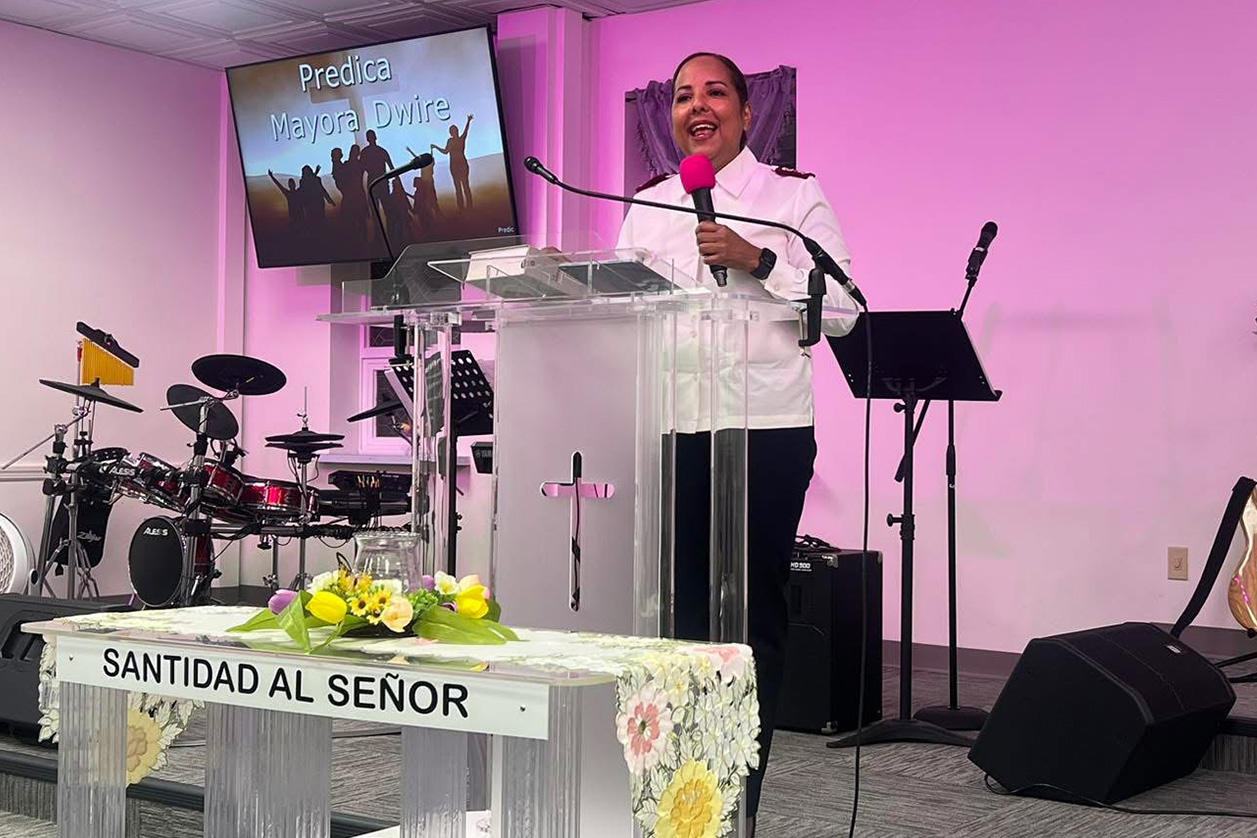
“For the last celebration, we welcomed about 190 people. This time, we had about 280 filling our chapel,” says Captain Francisca. “I think New Brunswick being in the center of New Jersey makes it accessible to other corps without having to travel too far. Having so many people with us from across the division gave our worship a special energy that night.”
Sermons and prayers were done in Spanish, with a translator present for non-Spanish speakers. Families with children also had their own time for ministry, so every age group felt included in the service.
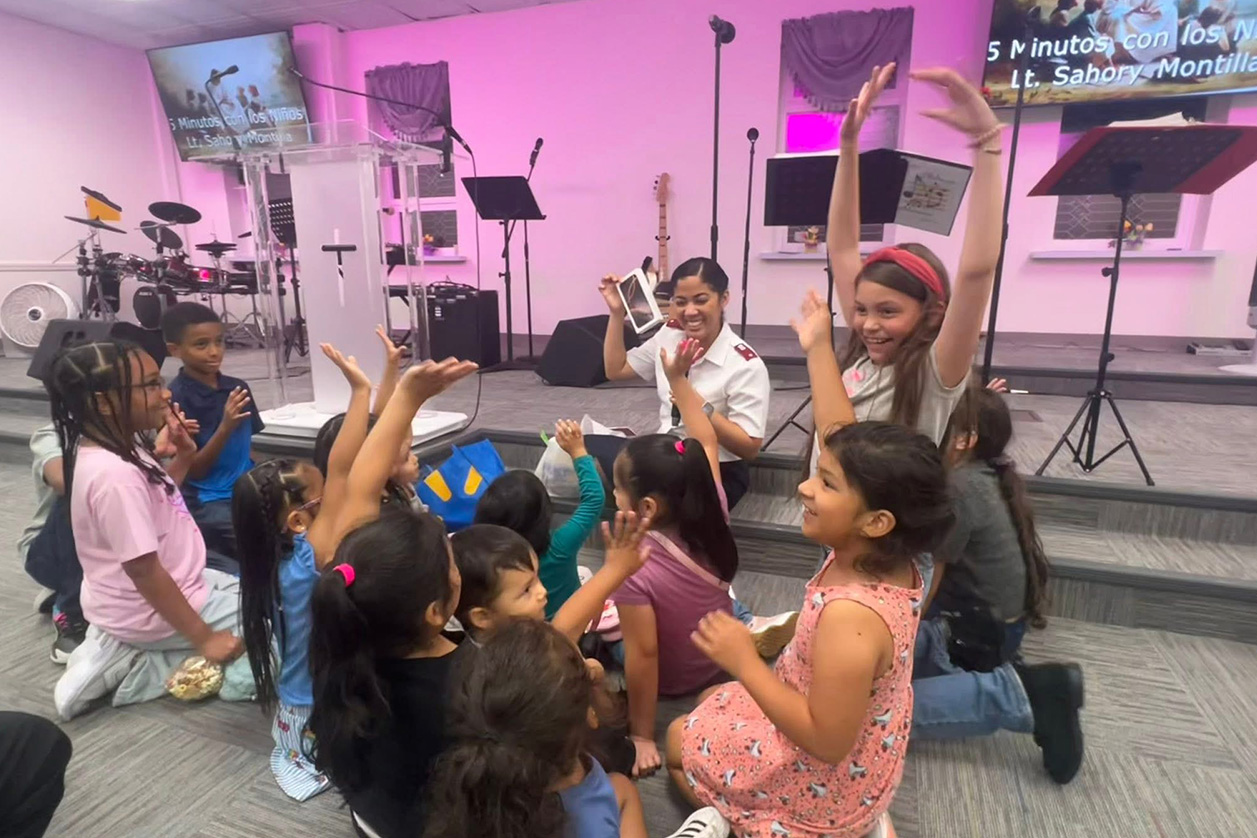
“Worship is a part of any event, whether it’s a social or spiritual program. We pray for their families here and we pray for their families back home. We even take time to pray for the governments of those countries,” says Captain Francisca.
The New Brunswick Corps has always held days to uplift Hispanic culture, such as “Honrando nuestra raices” (Honoring Our Roots), an event with a focus on the corps’ individual cultures, complete with flags, tables for foods from various countries, and traditional clothing.
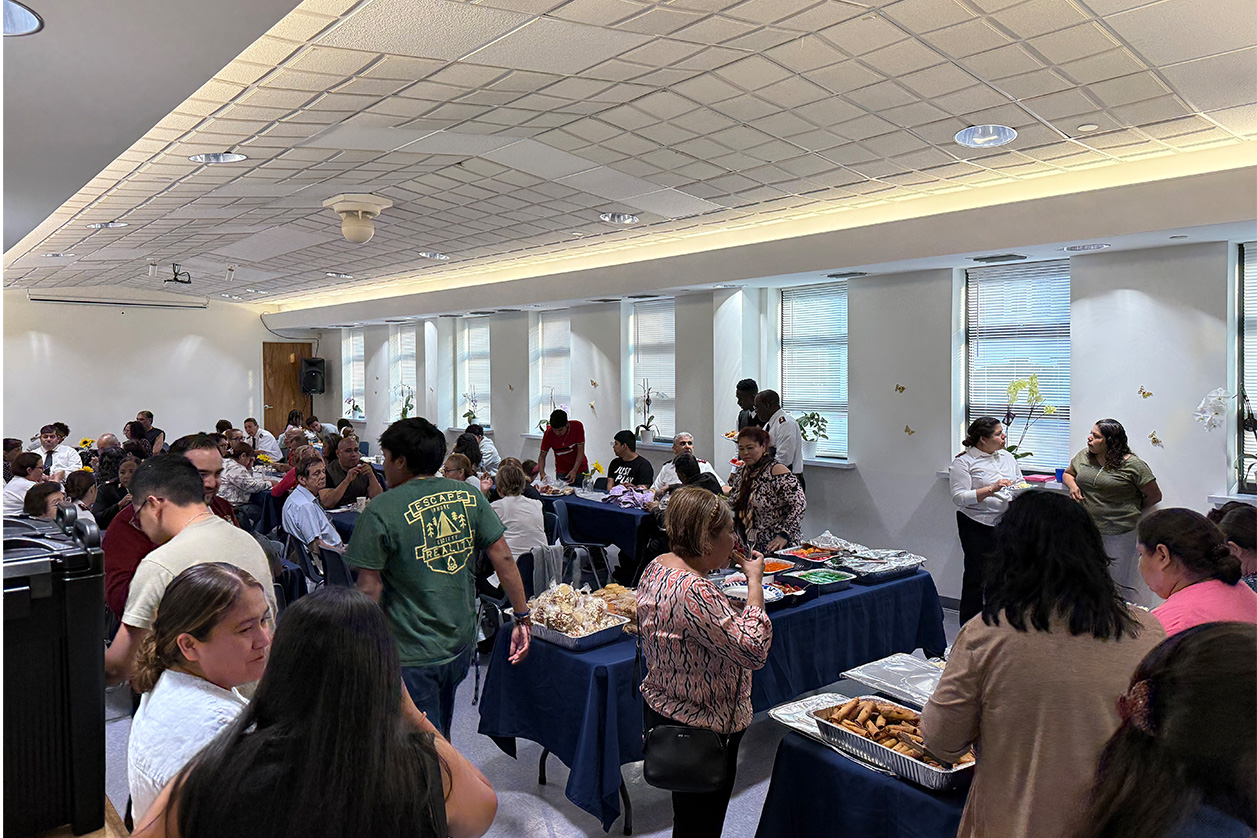
Captain Francisca says there’s a unique joy in embracing the cultures of others, whether it be in statewide Salvation Army events or smaller programs such as women’s ministries. Even within their corps, people from different Spanish-speaking countries have their own cultures, food, and words, even if they share a common language.
“My husband and I are from Puerto Rico,” says Captain Francisca. “When we came to New Brunswick, which has a large Mexican population, we asked our congregation to let us know if any words or phrases we used confused them or they had never heard them before. We may all speak different Spanish, but we’re also one corps that loves each other and learns from each other.”

